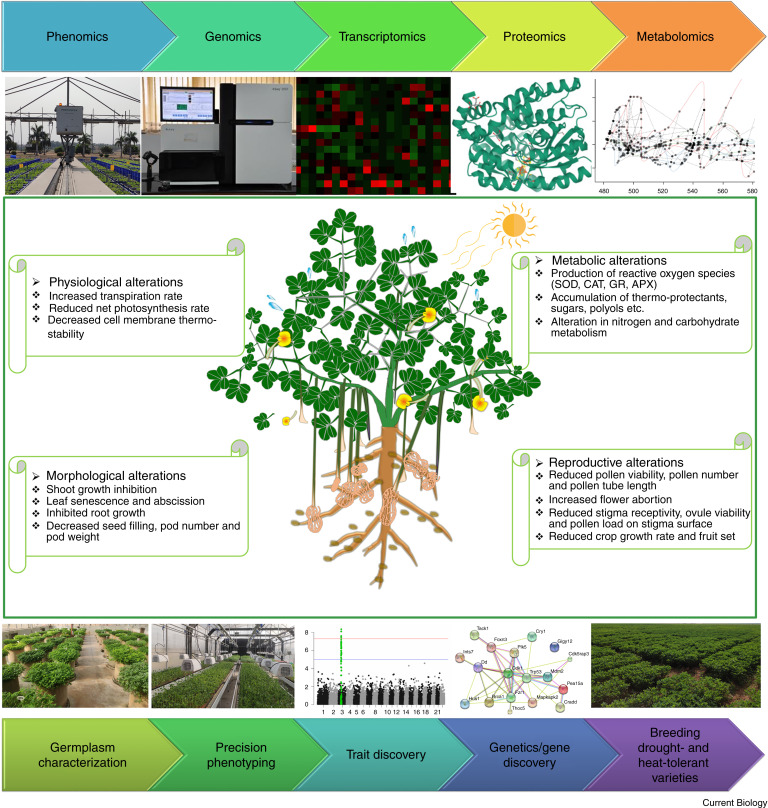Enhancing climate change resilience in agricultural crops
December 04, 2023 | Current Biology |
Introduction: To ensure food security for a burgeoning global population, a 28% increase in global agricultural production is required over the next decade. However, climate-related constraints and the need for more arable land clash with diminishing water availability. Paradigm-shifting advances in crop breeding are essential, necessitating the safe application of genetic technologies while considering environmental, economic, and social factors. Scientists from University of Leeds in UK, University of Salamanka in Spain, Federal University in Brazil review innovative approaches to mitigate the impact of environmental stresses on agriculture, ranging from genomics to soil microbiome manipulation.
Key findings: To address challenges in understanding the molecular mechanisms of crop responses to climate change, identifying resilient crop phenotypes, and exploring the impact of management practices and the microbiome, the researchers proposed collaborative research networks to promote holistic solutions that rest on integration of high-throughput phenotyping and genotyping, crop management, modeling, as well as stakeholder engagement.
Read more

Fig. | Understanding and harnessing gene bank diversity for developing stress-tolerant varieties.
Viewed Articles
December 04, 2023 | Current Biology |  Introduction: To ensure food security for a burgeoning global population, a 28% increase in global agricultural production is required over the next decade. Howe
Read More
August 17, 2023 | Nature Food | Introduction: The study conducted by the University of Minnesota, Colorado State University, Chongqing University, and other institutions in the US and China delves int
November 30, 2023 | Computers and Electronics in Agriculture |  Introduction: Precision agriculture involves using advanced technology to optimize crop growth, and soil organic matter for crop growth.
June 5, 2023 | International Journal of Life Cycle Assessment | Source |  Introduction: The study, led by researchers from the International Rice Research Institute (IRRI), investigates innovative too
May 23, 2023 | NPJ CLIMATE AND ATMOSPHERIC SCIENCE In this study conducted by the University of Chinese Academy of Sciences, Hong Kong Baptist University, and other international institutions, researc
July 14, 2025 | Land |  Introduction: Digital and precision agriculture are widely recognized for improving farm efficiency, yet less is known about their broader social and institutional effects on t






